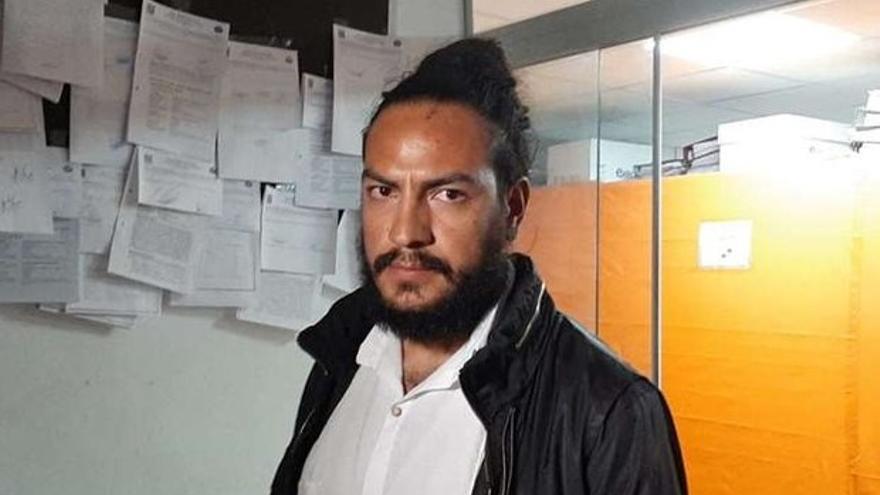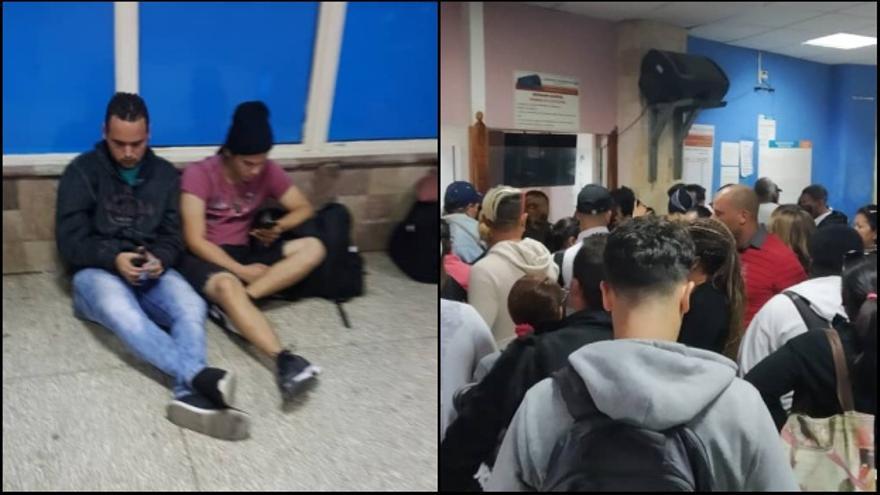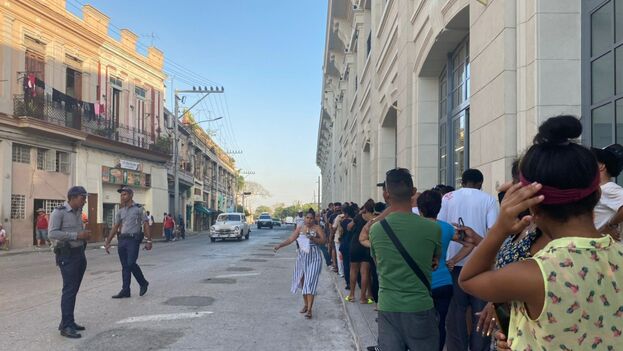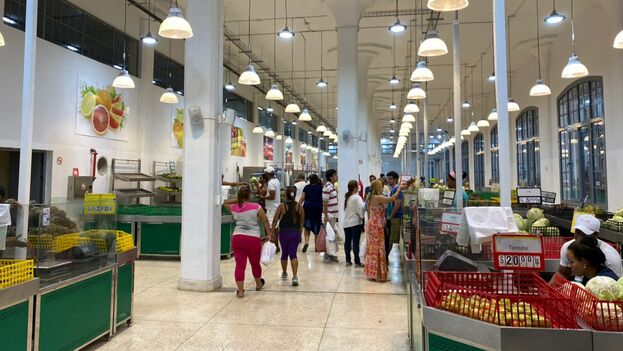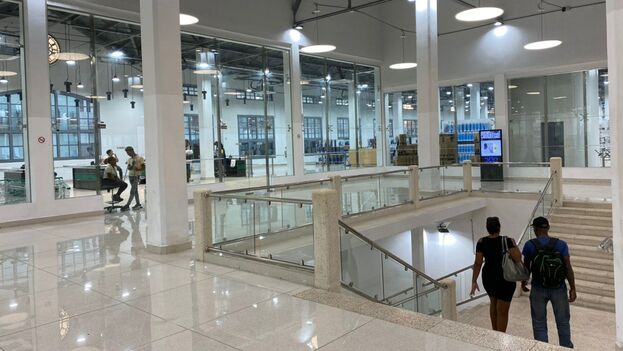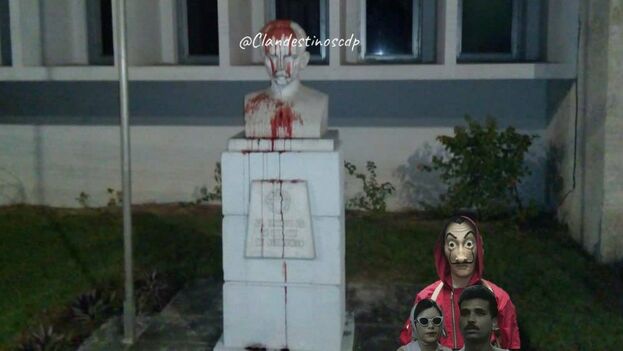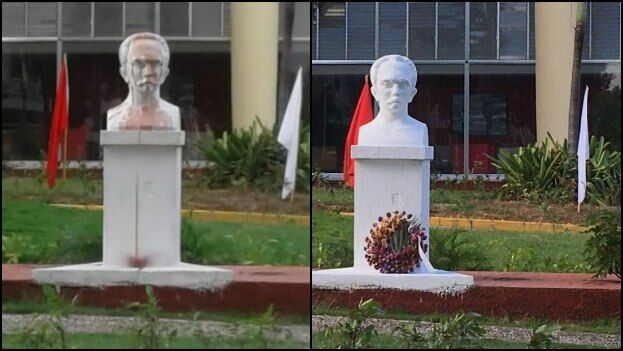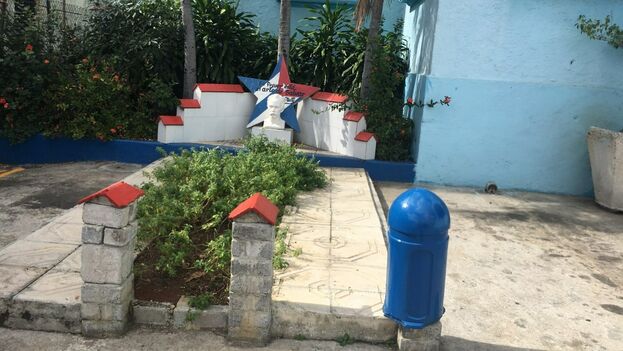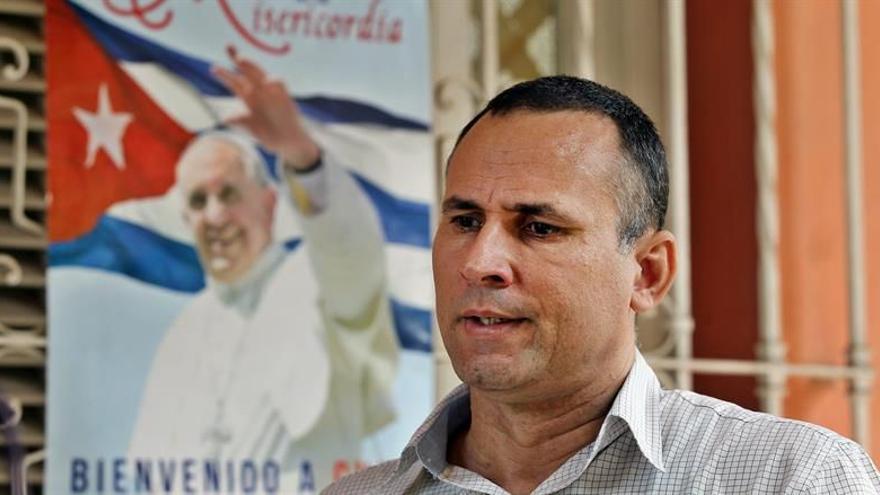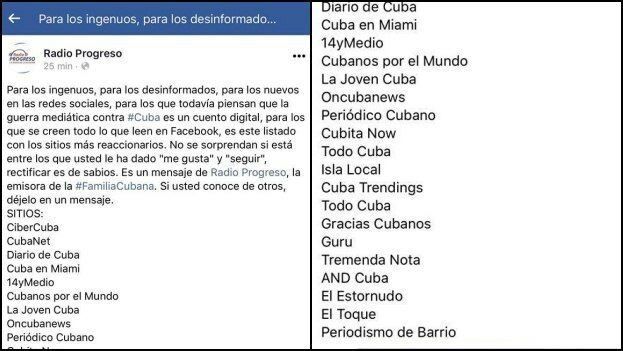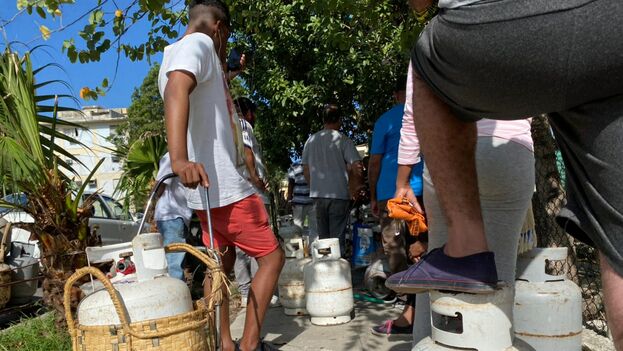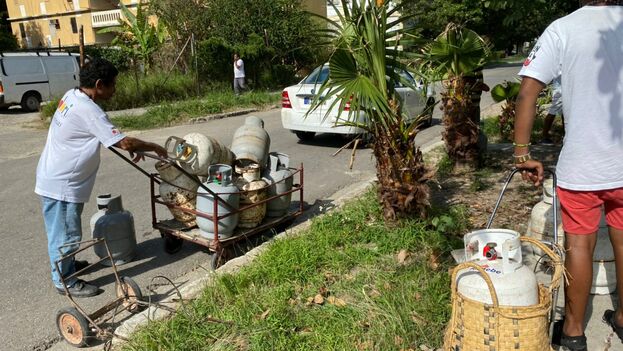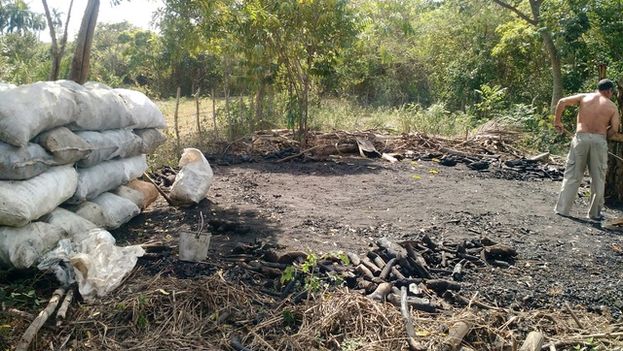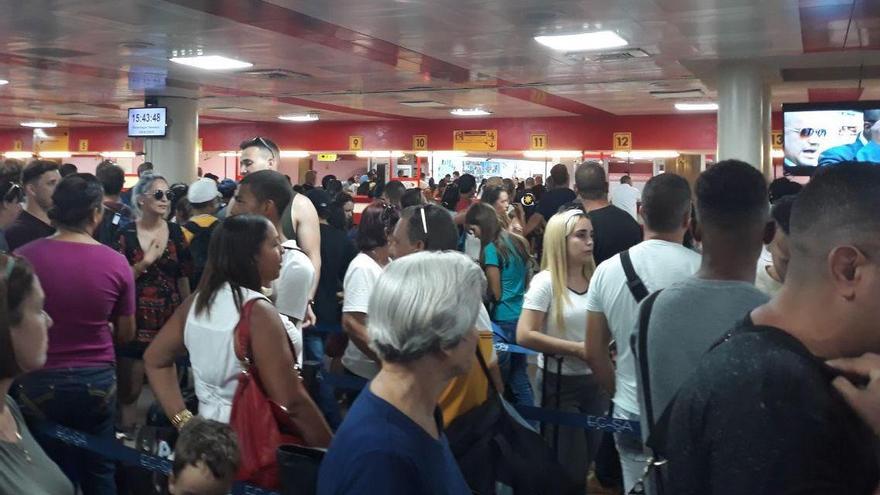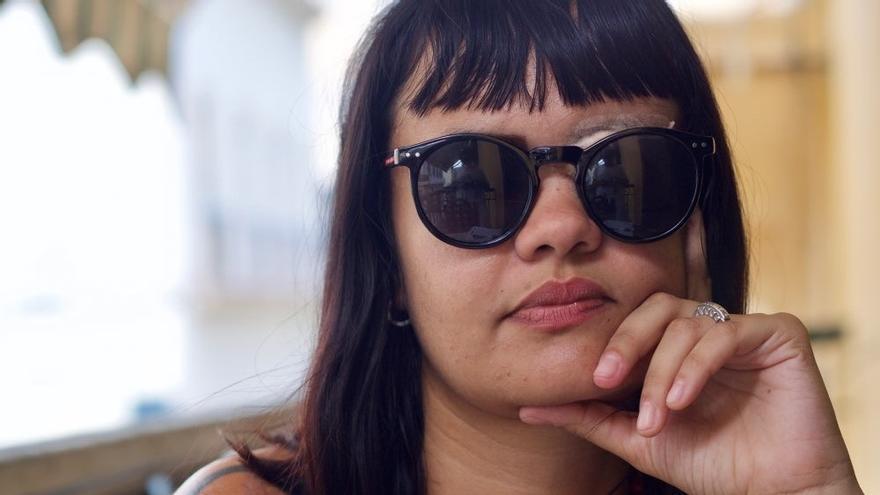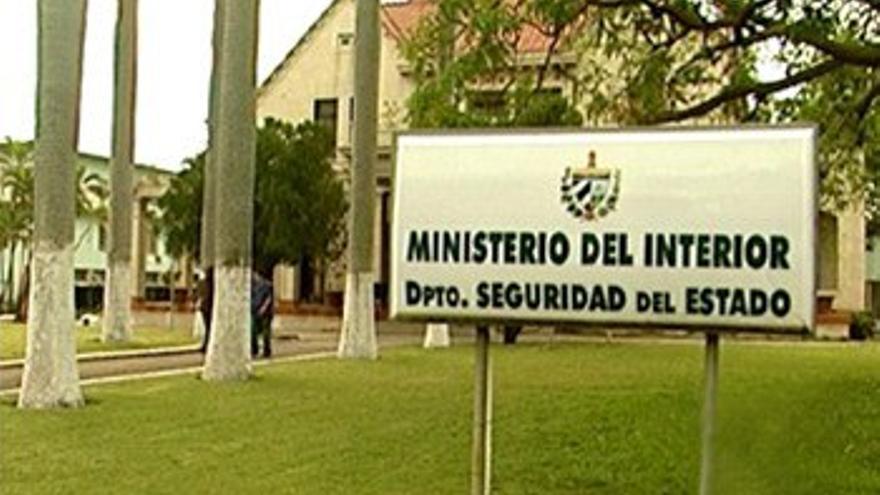
![]() 14ymedio, Havana, January 23, 2020 — After being pointed out by the Cuban State’s television monopoly as the main person responsible for the activities of the Clandestinos, Ana Olema Hernández responded this Wednesday on the program El Espejo of AmericaTeve. “The system has no credibility. It’s a total defamation,” said the activist.
14ymedio, Havana, January 23, 2020 — After being pointed out by the Cuban State’s television monopoly as the main person responsible for the activities of the Clandestinos, Ana Olema Hernández responded this Wednesday on the program El Espejo of AmericaTeve. “The system has no credibility. It’s a total defamation,” said the activist.
Hernández, who lives in Miami, was accused in the Tuesday report on the State channel of having paid $600 to Panter Rodríguez Baró, who is presumed responsible along with Yoel Prieto Tamayo, of pouring pork blood on 11 busts of Martí and writing political content on three walls at the beginning of 2020. In order to sustain its accusations, the program showed alleged receipts of money sent by Western Union.
Hernández admitted having known Rodríguez during a brief visit to Cuba in 2018, but she denies any link to the Clandestinos or knowing any of the other three accused. continue reading
“From the very first moment they have tried to find someone guilty in order to keep the image they want to give that the System maintains absolute control of the country,” said the activist, who thinks the situation is out of the control of the Government.
Hernández was accused in the report of being “at the service of the United States and the anti-Cuban mafia located in Florida”, of having ties with “counterrevolutionary and terrorist” organizations and of being, furthermore, a “puppet of subversion” implicated in causing “disorders.”
“The idea of the Clandestinos isn’t mine. They are trying to deny that there is an autonomous and legitimate opposition that is born from popular discontent,” he argued, before demanding that the Government have free elections.
Yonel Fernando Cardoso, another of those pointed out by Cuban television, admitted in a statement to El Nuevo Herald that he administers the Facebook group, “We are all Clandestinos”, which has more than 11,000 followers, but ties to the collective end there.
“I don’t have any relationship with the four people arrested in Havana. On my page, which is different from the Clandestinos page, I publish the Clandestino actions that other activists send me from Cuba,” she said.
The Miami paper contacted the activist, Liu Santiesteban, who also rejected the ties traced by the Cubans between the Clandestinos and Ana Olema Hernández or Ultrak by the mere fact that they had written songs about them.
“The Clandestinos are liked by a good part of Cuban society, although some people feel offended. I’ve seen many people who were first offended but later understood the message. The Clandestinos have taken away faith in the regime from many people, and that’s what scares the Government,” declared El Nuevo Herald.
The newspaper also spoke with the actor Roberto San Martín. “Why do I have to believe a regime that tortures and assassinates? I’m sure they’re trying to discredit Ana Olema, who recently went viral against the dictatorship, and those guys are simple snitches used to denigrate and shut up the opposition,” he said from Madrid, where he resides.
In addition, he said he had received a “suspicious” call by someone who tried to link him with the Clandestinos. “Under threat of execution, as they’ve had those guys, anybody will say anything. I don’t believe a thing the dictatorship says. There have no respect for the most elemental human rights,” he said.
Some of the media mentioned in a diagram used by Cuban State television are El Nuevo Herald, ADN Cuba, Diario de Cuba, Cubita Now and 14ymedio. They are accused of spreading facts of “similar magnitude,” although the official press itself has reported on the activities of the Clandestinios.
The musician Aldo Roberto Rodríguez Baquero, the political leader Rosa María Payá and the announcer Alex Otaola also appear in the diagram. Otaola told the Nuevo Herald that the Government continues to lie.
“As always, it’s a manipulation, a way to blame others for their disastrous system. It’s a ridiculous farce taking advantage of any excuse to create invisible enemies.”
Translated by Regina Anavy
See also:
Clandestinos: Outcome and Teachings of a Hoax / Cubanet, Miriam Celaya
The Controversy Over The Identity Of The Clandestinos Is Growing
Clandestinos, Legitimate Protest or Provocation by State Security?
Clandestinos: Heroes or Collateral Damage? / Cubanet, Miriam Celaya
_________________
COLLABORATE WITH OUR WORK: The 14ymedio team is committed to practicing serious journalism that reflects Cuba’s reality in all its depth. Thank you for joining us on this long journey. We invite you to continue supporting us by becoming a member of 14ymedio now. Together we can continue transforming journalism in Cuba.


